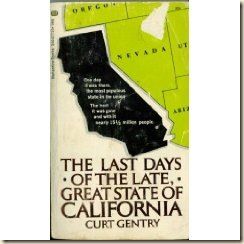Supermajority supercharges power of unions, Dems
by CalWatchdog Staff | November 8, 2012 10:16 am
Nov. 8, 2012
By Katy Grimes
 [1]
[1]
Now that the Democratic Party in California has won a supermajority in both houses of the Legislature, what does it mean for the state of the state’s politics?
Democrat view
Steve Maviglio, a seasoned Democtatic stratigist who has worked for former Gov. Gray Davis and former Assembly Speaker Fabian Núñez, said to expect not much will change. But he was very happy with the results.
A Democratic supermajority in the California Legislature is 54 Democrats in the 80-member Assembly; and 27 Democrats in the 40-member Senate. It renders the minority party almost irrelevant. And a supermajority can override the governor’s veto.
Maviglio said that Assembly Democrats did not expect to win a supermajority this election, but it was expected in the Senate. He added that California’s recent redistricting may have played a role.
This majority win caught many people off guard in the state.
But even within the Democratic Party, there are smaller blocks of groups, Maviglio explained. The Latino Caucus and the Black Caucus are two of the more influential Democratic caucuses that haven’t always agreed with party leadership on issues.
Maviglio also said he expected to see more of the moderates from each party work together more often on contentious issues.
What now?
Some in the state are critical of Assembly Minority Leader Connie Conway, asking how she could have lost the two-thirds. Others are critical of the California Republican Party.
For a grassroots perspective, I asked David Wolfe, Legislative Director for the Howard Jarvis Taxpayers Association[2], about the impact of a Democrat supermajority.
HJTA has 200,000 members throughout California, and was very active this election. “Taxpayers will be hurt as a result of this election,” Wolfe said. “Higher sales taxes hurt everybody, and the $250,000 income tax threshhold will hurt small businesses.”
The easy voter registration and online registration played a role in this election, Wolfe said. And as for the passage of Proposition 30, Gov. jerry Brown’s tax increase ballot initiative, Wolfe suspected that the “hostage trigger cuts” and guarantee of funding for realignment in some areas of the state helped.
Local tax measures
There were 240 local tax increases, bond measures and fee hikes this election. And most of them passed, according to Michael Coleman, a fiscal policy adviser to the League of California Cities. Coleman reported[3] that 171 of the 240 local tax increase and bond measures passed.
Four out of five school bond measures passed and four out of five majority vote taxes passed. Coleman reported that special taxes requiring the two-thirds threshhold of voters did not pass in such high numbers.
While the Assembly Speaker John Perez promised yesterday there would be no new taxes, Senate President Darrell Steinberg promised to pursue initiative and tax reform with the goal of bringing in more revenue for schools and social services. Steinberg has vowed since the first legislative cuts were made to social services to return the funding.
But Pérez said he plans to revive his “Middle Class Scholarship” program for college students. Perez fought very hard pass legislation which would have eliminated a corporate “loophole” to pay for the program. But the bill, AB 1500, died in the state Senate in the fall.
Proposition 39[4], which passed on Tuesday, was the near-identical twin to Perez’s AB 1500[5], ends the tax break for out-of-state businesses with the money going to a new green energy projects and the general fund. Prop. 39 is just another retread of the 2010 Proposition 24[6], designed to undo the Single Sales Factor tax calculation, used by out-of state businesses currently doing business in California.
Charter cities lost
On charter city proposals, which would have given cities more leeway to deal with the powerful unions: Costa Mesa’s lost by a large margin, Escondido’s lost, and Grover Beach’s appears to be losing in a close race. Anything the unions supported won big in California. Anything they strongly opposed lost.
Wolfe said that his taxpayer association will continue to fight tax increases and advocate limited government for its 200,000 members, but their job will be more difficult because of the Democrat supermajority. “We’re not going anywhere.”
- [Image]: http://www.calwatchdog.com/2012/08/16/the-coming-great-california-pension-property-tax-earthquake/last-days-of-the-great-state-of-california-book-cover/
- Howard Jarvis Taxpayers Association: http://www.hjta.org/
- reported: http://californiacityfinance.com/MichaelColemanBio.htm
- Proposition 39: http://votersedge.org/california/ballot-measures/2012/november/prop-39
- AB 1500: http://www.calwatchdog.com/2012/08/20/prop-39-and-ab-1500-a-taxing-alliance/
- Proposition 24: http://ballotpedia.org/wiki/index.php/California_Proposition_24,_Repeal_of_Corporate_Tax_Breaks_(2010)
Source URL: https://calwatchdog.com/2012/11/08/supermajority-supercharges-power-of-unions-dems/